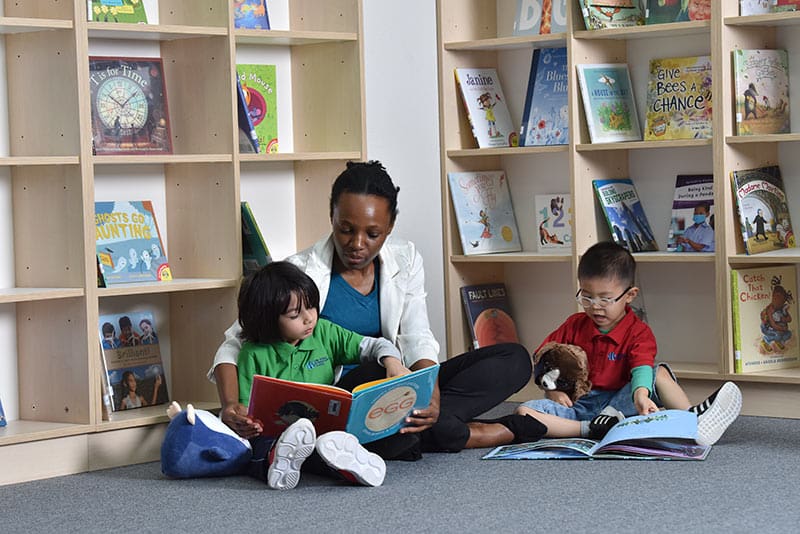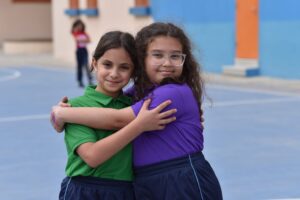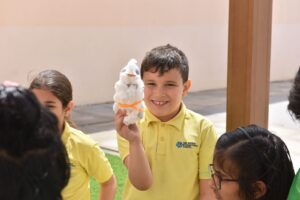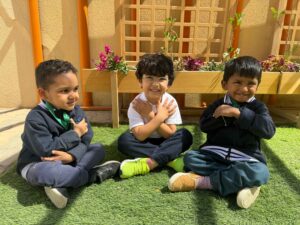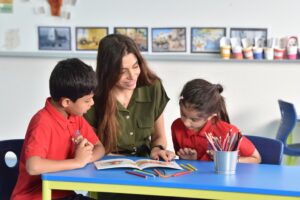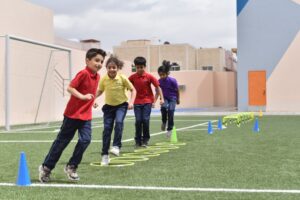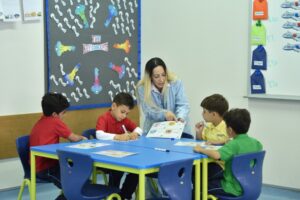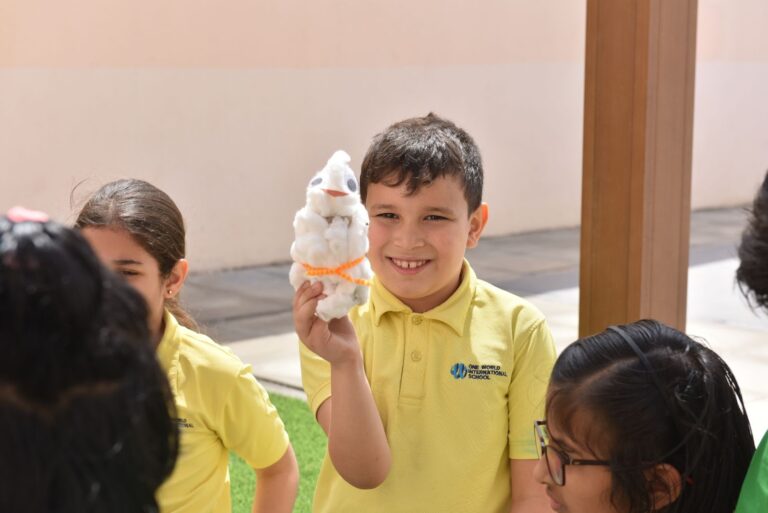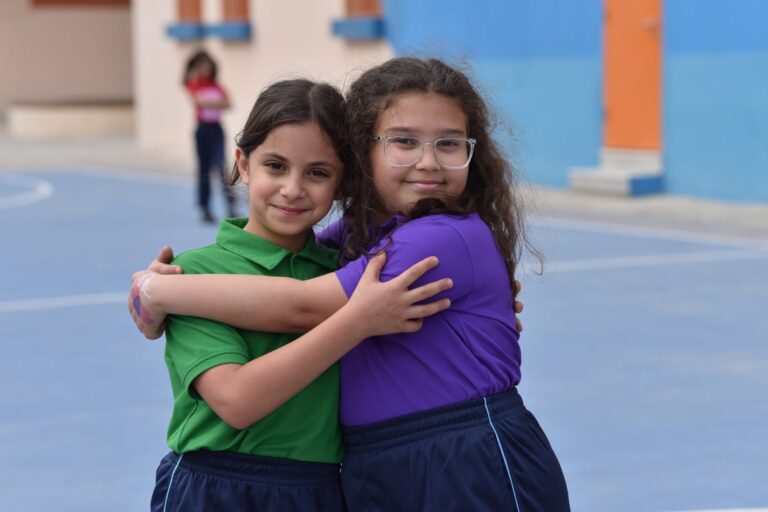Literacy is important for a child’s overall development; it helps them excel in an increasingly globalized, fast changing world. Introducing a literacy program in early years lays the foundation for performing well at school, improving socializing and problem-solving skills along with developing independence.
Integrating literacy programs in early childhood education helps children to read and write with more ease. At OWIS Riyadh (leading international school), our goal is for students to develop a strong confidence and foundation in reading and writing from Kindergarten. We want our students to understand the essence of literacy throughout their life. The Early Years Literacy Program at OWIS, supports children who are at various levels of linguistic proficiency and helps them to understand the nuances of the language.
How to include literacy in early childhood educational programs?
Reading workshops help children learn new words through pictures. Taking the ownership to identify words increases student-engagement and enables them to learn easily. Through such workshops children learn to read and analyze texts, understand concepts and have conversations about them.
Learning literacy through drama, collaborative games and other group activities helps children to develop critical thinking and communication skills. Children develop language and literacy skills through exploration-based learning in everyday activities. Relating fictional stories with children’s daily life experiences allows them to be fully engaged in their reading and writing workshops.
Literacy programs are initiated to make learning fun. Learning an additional language can be difficult for children and the intent here is to nurture student-agency and let them take the lead. Through simple daily programs like singing or telling stories, young learners can understand the core of literacy in powerful ways.
Literacy skills enable students to put ideas together into a cohesive structure and build from there. At OWIS, early learners achieve this through collaboration where students are able to put their thoughts into learning new words along with developing their reading and writing skills.
Literacy learning at OWIS, Riyadh – An Early Childhood initiative
- Focus groups for young writers make students be a part of one-on-one skills training in sentence structure, spelling, capital letters and more.
- Student-centric approach to teach literacy through the Jolly Phonics program using synthetic phonics – combining sounds to learn a word and enable children to read.
- Journaling, where children design their own books in which they can then draw, label and write.
- Integrating daily literacy lessons with play-based activities to teach phonics, presentation, reading, writing, listening and more.
- Utilizing a differentiated range of resources for personalized reading and writing instruction.
How the OWIS initiative helps develop Literacy in Early Childhood:
- We focus on the importance of literacy from a young age including how children draw pictures to tell a story and how they communicate with their co-learners.
- Partner sharing initiatives help students gain confidence in creating stories and engage in the literacy process.
- Reading and Writing workshops focusing on mini-lessons with guided practice from the teacher initiates independent learning among students.
- Natural progression towards phonetic awareness and development of decoding skills.
- Encouraging students to take initiative in their learning process where they analyze and evaluate their reading and writing skills. The autonomy in learning encourages students to actively involve in new subject matters.
- Students examine content through hands-on activities which leads to incorporating higher-level coherent skills in them.
Also Read: How to develop critical thinking skills in students
At OWIS American School Riyadh, from Kindergarten onwards students are introduced to age-appropriate language skills to communicate their ideas — both verbally and in writing. Students can design their learning experience and develop skills to make a lasting difference in literacy enrichment. Our exploratory and inquiry-driven curriculum offers children the opportunity to develop their interests, ask questions and encourage literacy-focused education while also giving them real ownership of their learning.
FAQ
These are 4 stages of writing development.
1. Emergent stage: Early exploration of writing.
2. Developing stage: Basic sentence structure and spelling.
3. Proficient stage: Advanced vocabulary and organization.
4. Fluent stage: Mastery of various writing styles and genres.
Admissions & Communications Director
-
owishttps://owis.org/sa/author/owis/
-
owishttps://owis.org/sa/author/owis/
-
owishttps://owis.org/sa/author/owis/
-
owishttps://owis.org/sa/author/owis/
